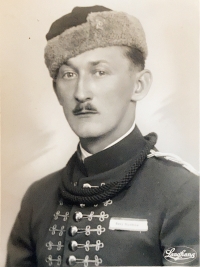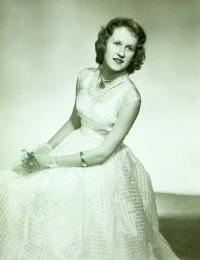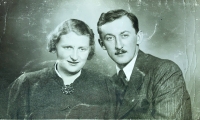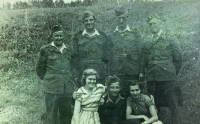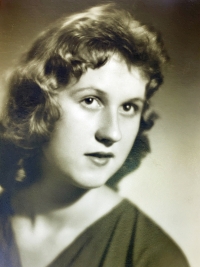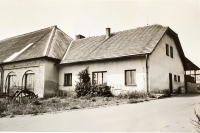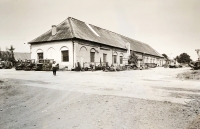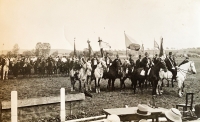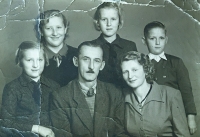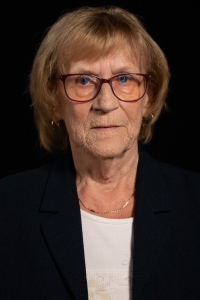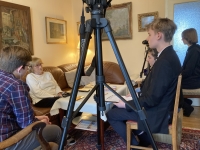The communists took their farm. Most of their neighbours approved.

Download image
Zdeňka Lažanová was born on 21 November 1942 in Hradec Králové. Her father, Ladislav Chmelař, was the largest farmer in Starý Bydžov and was one of the organizers of village life. He was also a member of the Farmers Ride - an equestrian association of Czech and Moravian farmers. On 5 July 1947, he was arrested during the so-called Nechanice Affair, when the communist Ministry of the Interior, with the help of hundreds of armed National Security Corps officers, prevented a planned congress of the Farmers Ride. Ladislav Chmelař was released the same day, but from the Nechanice events he was under constant police surveillance. During the communist coup the following year, he was arrested again on 23 February 1948 and held in a cell for half a year. The farm in Starý Bydžov was nationalized. The family moved to Pecínov near Benešov, where the father initially worked on the state farm, but in 1950, as former “kulaks”, they had to move out of there within twenty-four hours. They found a new home in a settlement near Čerčany called Jericho, where the Jewish Fogl family gave them half of their summer residence to live in. Ladislav Chmelař was soon sent to serve his miltary service at the Auxiliary Engineering Corps. Zdeňka experienced hard time at school because of her background, but unlike her older sisters, in 1956 she was allowed to study at the so-called eleven-year school. However, she was not allowed to apply for a university study and went to Karlovy Vary to join her sisters and found a job as a land surveyor. She finally graduated from the Faculty of Civil Engineering by distance learning in the mid-1970s, when she was already working as a draughtswoman and designer. After 1989, the family restituted the damaged farm and less than half of the original acreage. However, since none of the descendants wanted to farm anymore, they gradually sold the farm and the land. After the Velvet Revolution, Zdeňka Lažanová founded a private contruction project office, and is now retired and living in Prague.
